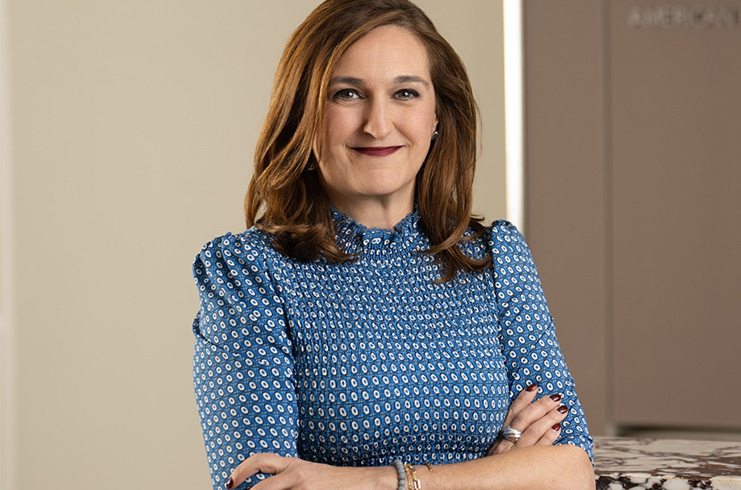
As a hotel broker, I know firsthand that a broker significantly influences the success of the deal. With years of experience navigating complex hospitality transactions in an industry that is constantly evolving, I’ve seen the impact a savvy broker can have on both buyers and sellers.
Whether selling a property or looking to purchase, working with the right broker ensures the best possible outcome while avoiding unnecessary headaches. When weighing options and deciding which broker to work with, it’s important to consider their network, marketing strategies, negotiation and sales skills, commitment to trust and transparency, and how they leverage technology.
1. A Broker’s Network is Only as Effective as Their Commitment to Utilizing it
A broker’s network is often the biggest asset they bring to the table. An exceptional broker doesn’t just list properties; they also know who the serious buyers and investors are and how to get the transaction across the finish line. Equally importantly, they have the relationships to bring those buyers to the table.
One of the biggest disservices I see in this industry is brokers who refuse to work with outside agents. I’ve encountered it firsthand—reaching out to brokers about listings that could be a perfect fit for my buyers, only to be met with resistance because collaborating means splitting fees. I once had an owner approach me at a major industry conference, frustrated that his hotel had been sitting on the market with little movement. When I reached out to the listing broker to explore options, I was told that if I brought a buyer, I’d have to negotiate my own fee, an approach that ultimately made the deal less attractive and limited the owner’s chances of closing. This kind of thinking is a disservice to owners and puts them and investors at a disadvantage by restricting opportunities.
The ideal broker should be committed to securing the best possible deal, regardless of the source of the buyer. It’s imperative to work with someone who not only has a strong network but who also values collaboration over competition.
2. Effective Marketing is Never One Size Fits All
Not all hotel transactions are created equal, and not all properties require the same marketing strategy. Understanding a property’s unique qualities and tailoring the marketing approach to suit its potential is critical. A strong broker will understand that while some properties may benefit from high visibility and extensive exposure to a large audience of potential buyers, others might require a more niche, customized strategy.
Marketing a hotel extends beyond highlighting its features; it also involves crafting and conveying its unique story. It’s important to choose a broker who will take the time to understand the hotel’s operational model, its potential for growth, and what makes it stand out in the market. Conveying the value proposition, upside potential, and short- and long-term investment are all critical for buyers to best understand the entire opportunity.
3. Sales and Negotiation Skills Differentiate the Best Brokers
It’s easy to focus on fees when choosing a broker, but the real test comes long after the listing agreement is signed—it’s when the deal is on the line and negotiations get tough. A skilled broker is there to market your asset, protect its value, maximize your return, and navigate the inevitable curveballs that come with selling a hotel. Negotiation is an art, and an experienced broker knows how to navigate the unexpected, handle high-pressure situations, and get creative to keep the deal moving forward.
Owners should consider: Do I have full confidence in this broker’s ability to represent my investment when challenges arise? In high-stakes transactions, obstacles are inevitable. When attorneys, lenders, and assertive buyers come into play, you need a broker who stands firm, navigates complexities with expertise, and advocates relentlessly for your best interests while strategically keeping the deal on track.
Confidence, strategic thinking, and the ability to communicate effectively are qualities that separate a true dealmaker from someone who simply lists a property. When selecting a broker, look beyond the obvious. Pay attention to how they carry themselves, how they answer tough questions, and whether they have the experience to represent your asset when it matters most.
4. Trust and Chemistry are Priceless
Selecting the right broker requires careful consideration of both expertise and trust. It is essential to choose a professional who not only possesses a strong track record and deep understanding of your asset but also demonstrates a genuine commitment to advocating for it. A broker who aligns with your vision, actively listens to your needs, and supports your long-term objectives can provide invaluable guidance, ensuring you make informed decisions in the face of challenges.
I’ve seen numerous owners default to the path of least resistance when hiring a broker: a nephew, a longtime friend, or someone within their immediate circle. While loyalty is admirable, selling a hotel and putting an investment on the line demands the right partnership, not just the most convenient one.
A successful partnership also begins with transparency. I always tell my clients they should feel comfortable sharing their goals, concerns, and expectations from the outset. It’s important to find a broker who you can trust to be upfront with you, so they have the best chance to navigate the transaction in line with your expectations.
5. Technology Drives Smarter Transactions
Advancements in technology have transformed the way brokers approach hotel transactions, making adaptability essential for success. One of the most significant shifts has been in the collection and utilization of data. Traditionally, brokers relied on broad, catch-all databases—an approach that, while functional, was not always the most efficient. Today, technology enables the creation of highly targeted buyer databases, filtered by criteria such as brand preference, location, asset class, price range, and more. This refined approach allows brokers to strategically position properties in front of the most qualified buyers, rather than relying on broad distribution with uncertain results. Thus, it is advantageous to partner with a broker who leverages this technology.
Ultimately, selecting the right broker requires careful consideration of multiple factors, as the ideal choice varies for each individual. The key is to identify a broker whose expertise and skills align with your specific property needs. Partnering with someone who understands these nuances and fosters trust and confidence is essential to a successful partnership.






